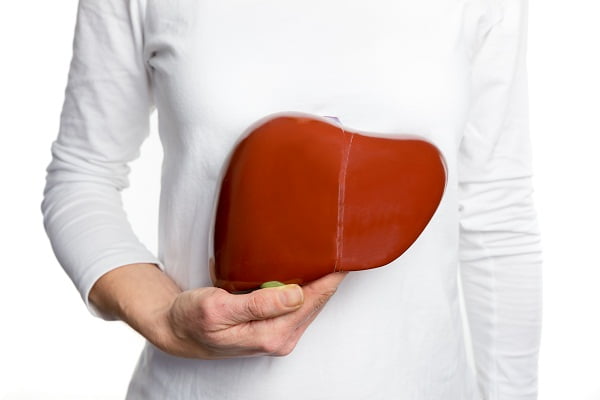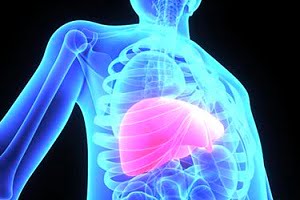What Are the Complications of Cirrhosis?
- Updated on: Jun 12, 2024
- 3 min Read
- Published on Sep 27, 2019


Cirrhosis Complications
The normal functioning of your liver is affected in cirrhosis. Even when the existing cells can make new cells which can function to maintain the basic processes in the liver, the condition is not as good as the normal healthy liver.
Reduction in the number of liver cells and its capability to produce and break down substances is affected with cirrhosis.
A damaged liver affects almost every process in the living body which includes digestive, hormonal and circulatory system. The most serious complication associated with cirrhosis is Portal hypertension.
Following are the complications associated with liver cirrhosis:
- Portal Hypertension
- Ascites
- Variceal Hemorrhage
- Hepatic Encephalopathy
- Hepatorenal Syndrome
- Spontaneous Bacterial Peritonitis
- Liver Cancer
- Other Complications
Portal Hypertension
Cirrhosis increases the resistance to blood flowing in the arteries leading to high blood pressure. The regenerative nodules caused due to the repairing of scar tissues can compress the veins within the liver. This causes a rise in blood pressure within the liver. The condition is called as portal hypertension.
This reduces the blood flow to the intestines and other abdominal organs. Ultimately, portal hypertension causes bleeding in intestines and accumulation of fluid in the body. High blood pressure occurs in almost all the liver cirrhosis patients.
Ascites
Ascites is the buildup of fluid in the abdominal cavity. The condition can be very uncomforting and can impair breathing. Portal hypertension and low level of albumin cause ascites. However, ascites alone does not create any major issue but it should be taken as a warning sign.
The high blood pressure in the veins of the liver causes the fluid to sip out of them and pools up inside the abdominal cavity.
Variceal Hemorrhage
Variceal hemorrhage is one of the most serious complications of cirrhosis. Variceal hemorrhage is characterized by development of veins that provide an alternate route for the blood diverted from the liver. In the majority of cases, these are formed in the esophagus and upper stomach.
These veins are thinly walled and twisted thus subjected to high pressure. Thus, they have a high risk of rupturing which can cause bleeding. Blood in vomiting and black-brown tarry stool are warning signs and should be taken seriously.
Hepatic Encephalopathy
Mental impairment in cirrhosis is a common complication. In severe cases, it can lead to encephalopathy. The symptoms may range from confusion to coma and death. The reason behind this complication is pooling of harmful toxins (majorly ammonia) in the blood. The condition can also trigger internal bleeding, constipation and dehydration in the person.
There are some early symptoms that should not be ignored or taken lightly like confusion, forgetfulness, unresponsiveness and trouble in concentrating. During its initial stages, a person also suffers from tremors and bad fruity-smelling breath. The condition can lead to serious problem if not treated on time.
Hepatorenal Syndrome
Kidneys reduce blood flow in them as a response to decreased blood flow in the liver. The condition is serious and develops in late stages of liver cirrhosis and people with ascites. The common symptoms of this condition are:
- Dark-colored urine
- Reduction in urine volume
- Yellowing of skin
- Swelling in abdominal region
- Confusion
- Delirium
- Tremors and jerking
- Nausea and vomiting
- Mental changes and abnormal behavior
The condition is life-threatening and immediate healthcare consultation is required.
Spontaneous Bacterial Peritonitis
This is generally associated with ascites. Spontaneous bacterial peritonitis is inflammation of the membrane that lines the abdomen. It is characterized by bacterial infection in the fluid pooled up in the abdominal cavity. Other bacterial infections are also common in cirrhosis.
It is a life-threatening situation in which patient shows abnormal behavior and confusion. The patient is also likely to suffer from fever and chills with severe abdominal pain.
Liver Cancer
Liver cancer is a serious long-term risk associated with cirrhosis. A person suffering from cirrhosis is at high risk of developing hepatocellular carcinoma (liver cancer). The main causative agents of cirrhosis- viral infection in liver, alcoholism and primary biliary cirrhosis, also cause liver cancer.
Other Complications
There are other complications that are caused by cirrhosis. These include:
- Kidney failure (caused by portal hypertension)
- Osteoporosis (thinning of bones)
- Heart complications (increased risk of cardiovascular diseases)
- Recurring infections (decreases the ability of body to fight infection)
- Malnutrition (weight loss and changes in metabolism)
- Jaundice (Yellowing of skin and eyes due to deposition of bilirubin)
- Swelling in the legs and abdomen (due to fluid retention)
- Enlargement of the spleen (splenomegaly)
- Insulin resistance
- Sensitivity to medication
- Bruising and bleeding
- Nail changes
- Terry’s nails or double nails
- Weakness, fatigue and anorexia
- Increase in size of breasts in males (Gynecomastia)
- Decrease in male sex hormone (infertility and testicular atrophy)
- Fetor hepaticus (musty breath odor)
Can cirrhosis be cured?
There is no cure for cirrhosis, but removing the cause can slow down the progression of the disease. If the damage is not too severe, the liver can repair itself over time.












